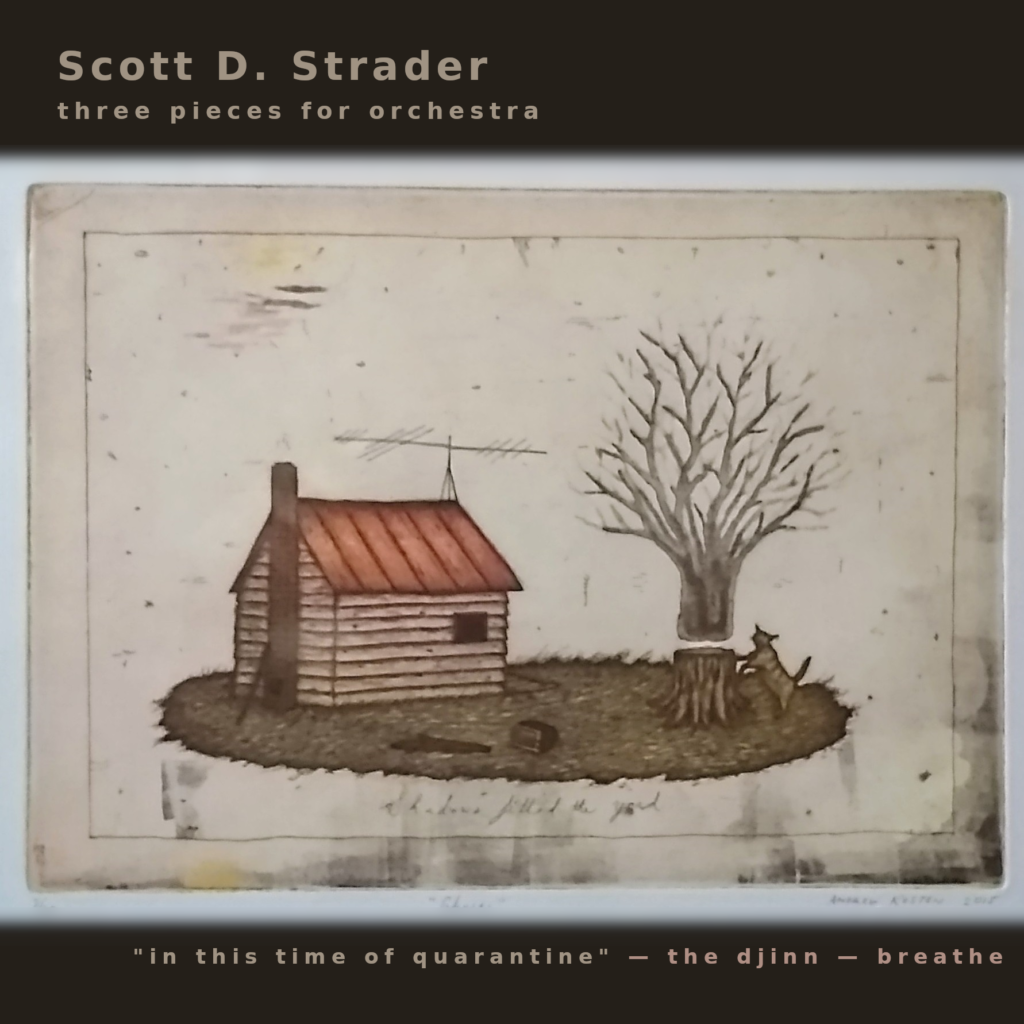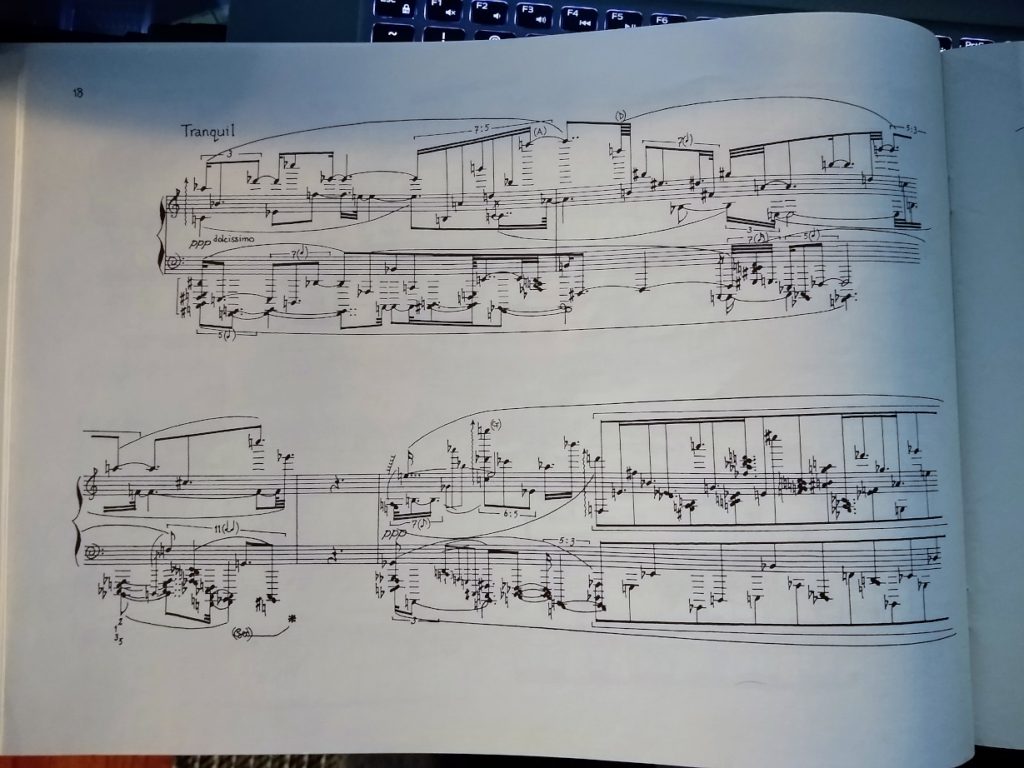I began the final section, the first movement, on 17 Dec 2020.
Continue reading Symphony No. 1 – The cautious walk to the endTag: New Complexity
A week of “The History of Photography in Sound”
I decided yesterday that I would listen to Finnissy’s 5-1/2 hour piano work The History of Photography in Sound (1995-2001) over several nights this week. Pianists perform it in it’s entirety in concert, but my brain doesn’t have the stamina to listen at length what theirs has to perform.
My daily notes while listening
Continue readingSymphony No. 1 – Finishing the 3rd movement, starting the 2nd
With this movement, and with each in the symphony, I want to dwell on a single theme in the way I did not and could not with my one-piece-per-month freshman exercises of last year. This work is my first major effort after those, and second efforts anachronistically always feel like senior theses to me, eschewing middle courses and diving in with more confidence. (This is a bit opposite to the curse of the sophomore slump but hopefully doesn’t result in an overfull mess.) Along with listening to it for coherence, I shallowly looked to the length in order to get a shorthand sense of whether I’ve committed enough time. The ~9 minutes of this movement feels like I’ve dwelt enough, and more importantly its flow and expression sound like it’s achieved enough. I’m content for now.
Mixing it in Dorico, which I plan after the symphony is complete, is going to take many weeks.
Continue reading Symphony No. 1 – Finishing the 3rd movement, starting the 2ndSymphony No. 1 – Time and texture
I realized after the fact that all of the titles except for the last movement have to do with time and the speaker’s relationship to time. 1st movement: subjunctive past; 2nd movement: present tense; 4th movement: past perfect; with the interlude referencing both infinite time and the end of time.
(1) What if this happened?
(2) I am now
Interlude: Everything was forever until it was no more
(3) An occupying army
(4) Decades had passed
Everything feels static right now, possibly because this current slow motion car crash leaves us in an endless nervous state that, when it ends, will cease to exist but will never end. My previous works were about a map that can tell the future and a man looking for the missing parts to his time machine, so time seems to be a general theme regardless of what’s happening in the world. Who knew?
Continue reading Symphony No. 1 – Time and textureThree Pieces for Orchestra

Audio exported from MuseScore:
Score exported from MuseScore:
three-pieces-for-orchestraAudio mixed and exported from Dorico (14 May 2021):
Audio uploaded to YouTube with cover art (15 May 2021):
- “in this time of quarantine”
- the djinn
- breathe
The first one comes from a comment someone had made on Twitter that, though simple enough, felt resonant when given its own context. It stuck with me unexpectedly so I never bookmarked the source. The second is from a parable by Howard Taylor (which I referenced here a few weeks ago) regarding the cost of our responsibility to others. The last is both a hopeful and not hopeful outcome.
After obsessively listening to the New Complexity pieces, I realized that I haven’t gone far enough into the atonal world. Although much of New Complexity is tonal-ish, the extreme range was creatively inspiring and I tried to go as far as I could with that approach for “quarantine”. That section is also a stretch towards the “tapestry of sound” described by Piston for when many simultaneous voices work with drastic melodic contrast. It’s our unnerved disbelief at what we’re in right now, responding with nervous laughter. That moves on to a piece, “the djinn”, emphasizing primarily rhythmic contrast across voices. It’s the destructive, will-less bouncing of contagion. Finally to a harmonic/rhythmic consonance, but that’s ultimately bruised by what occurred previously.
(This is exported from Musescore and I’m working on the cleanup in Dorico.)
Updated 30 min later: Speaking of New Complexity, I just picked up the mail and my copy of Finnissy’s English Country-Tunes was delivered. (Pic added below.)
